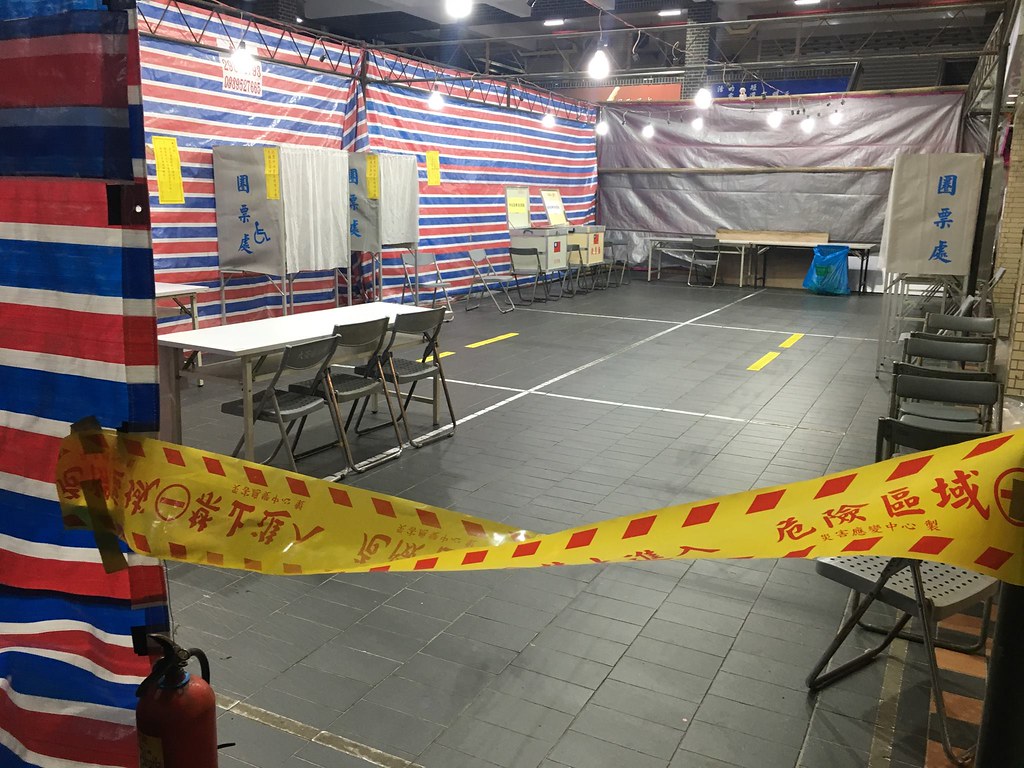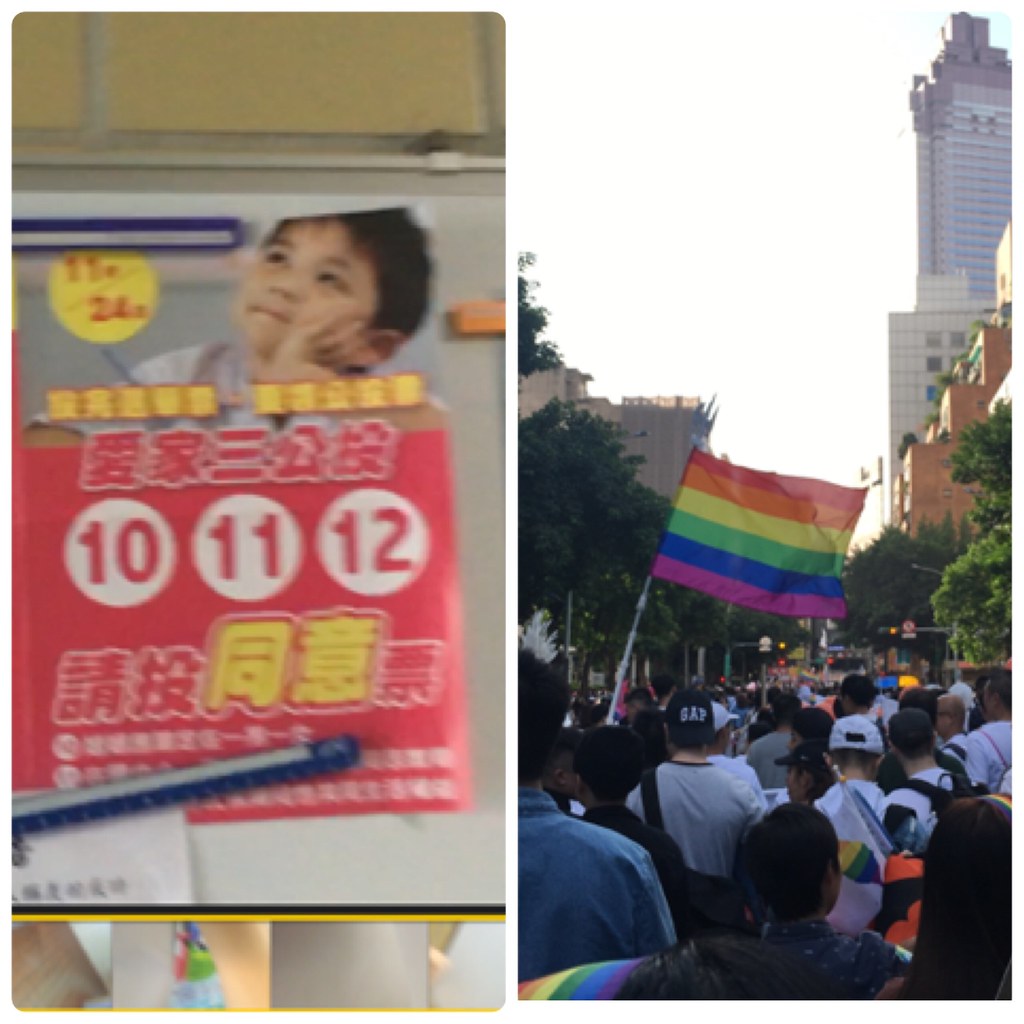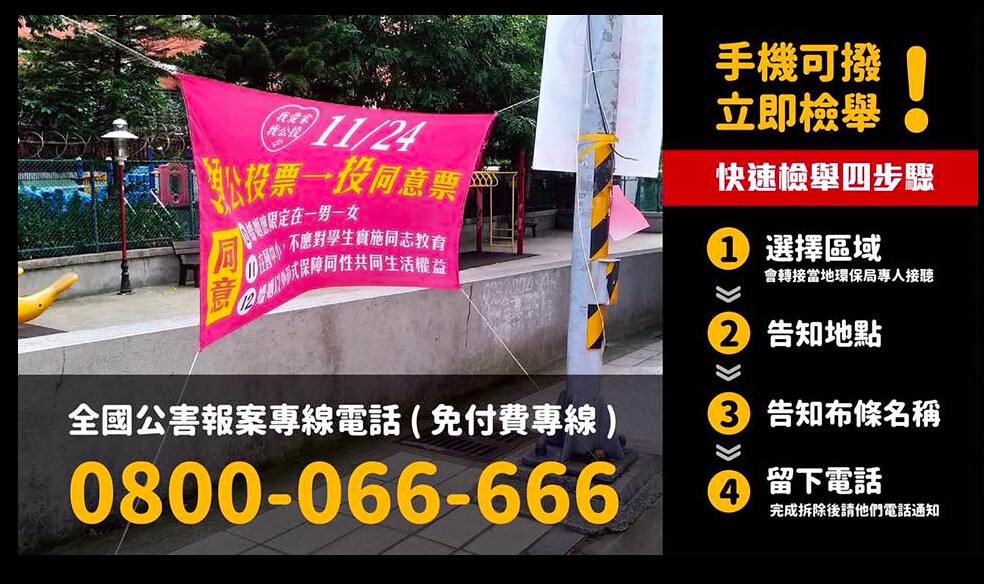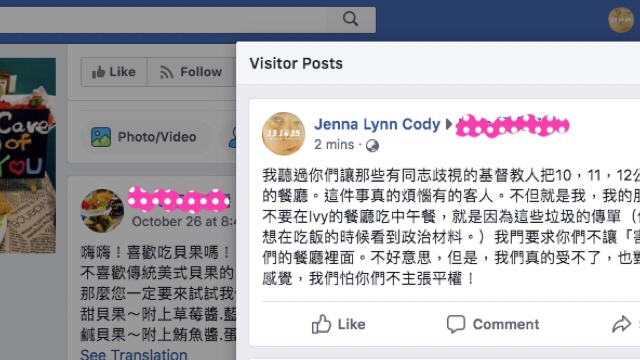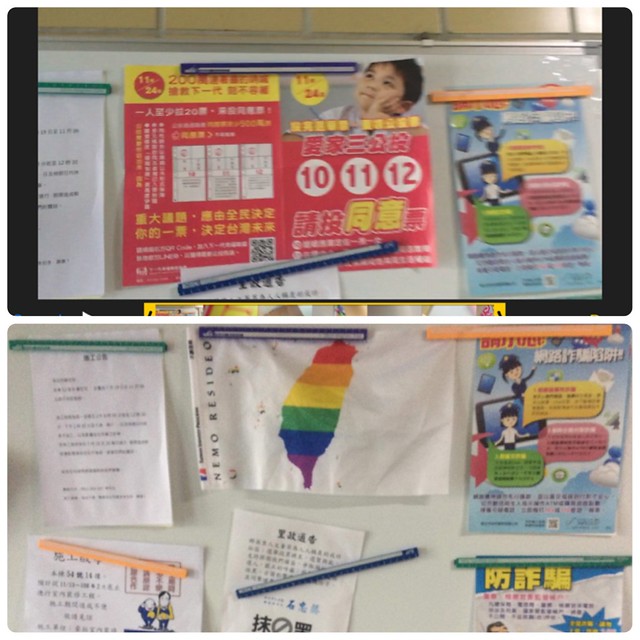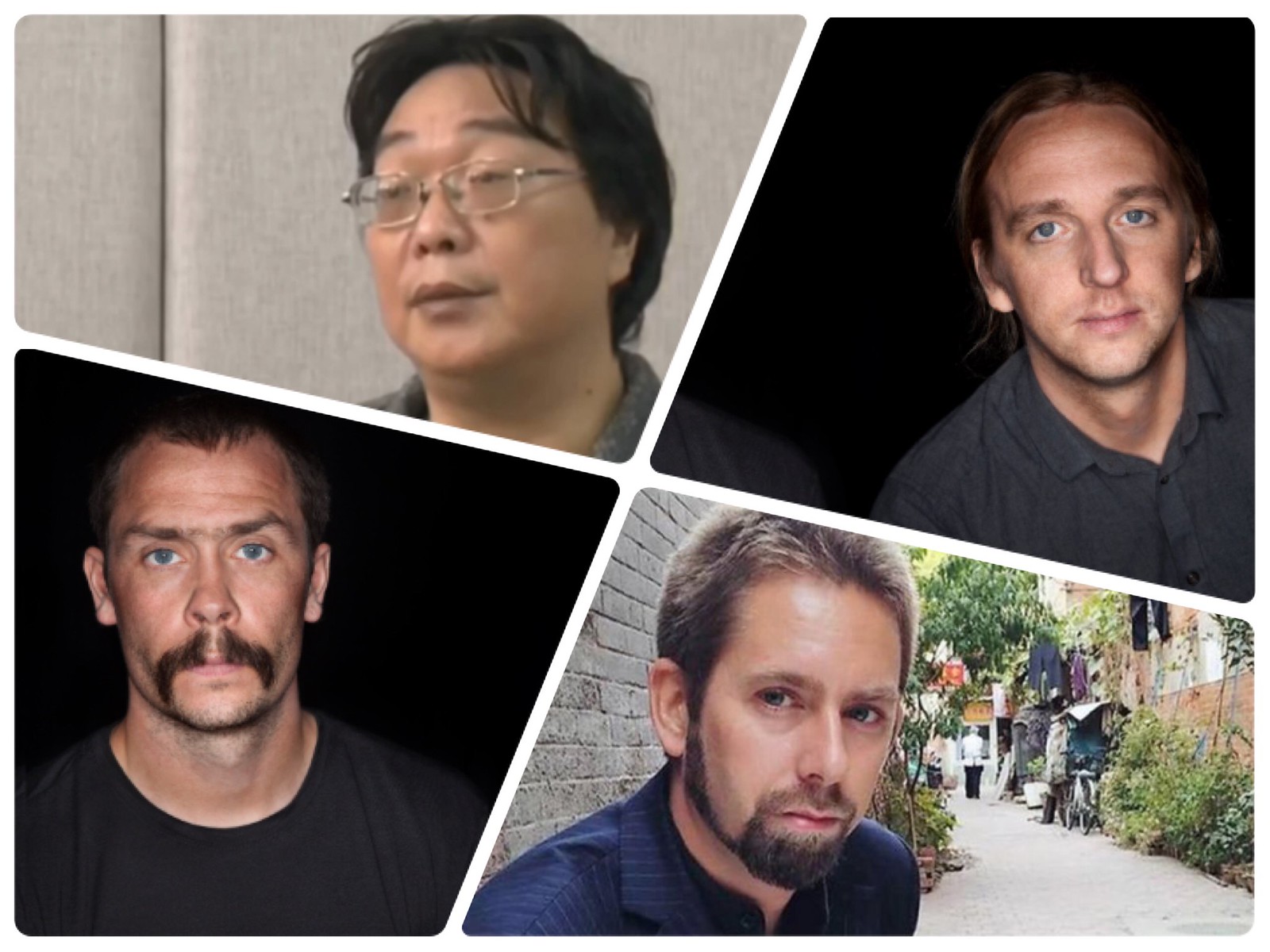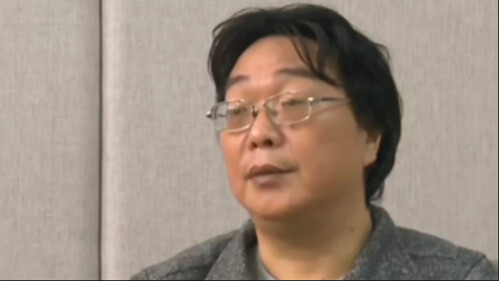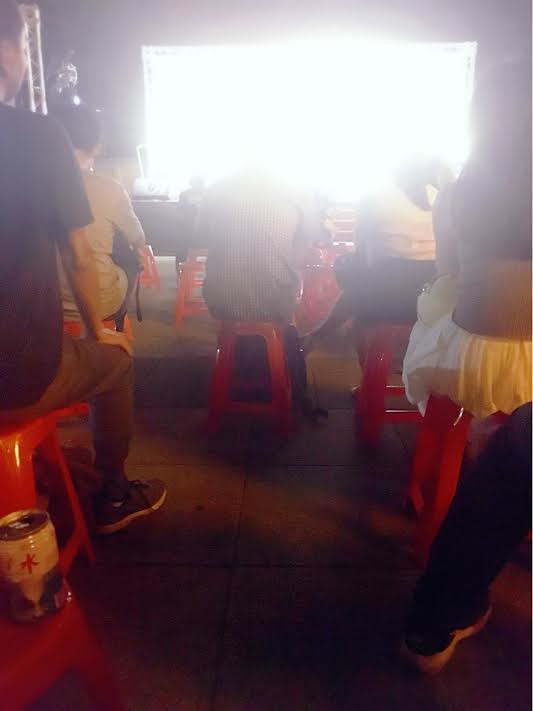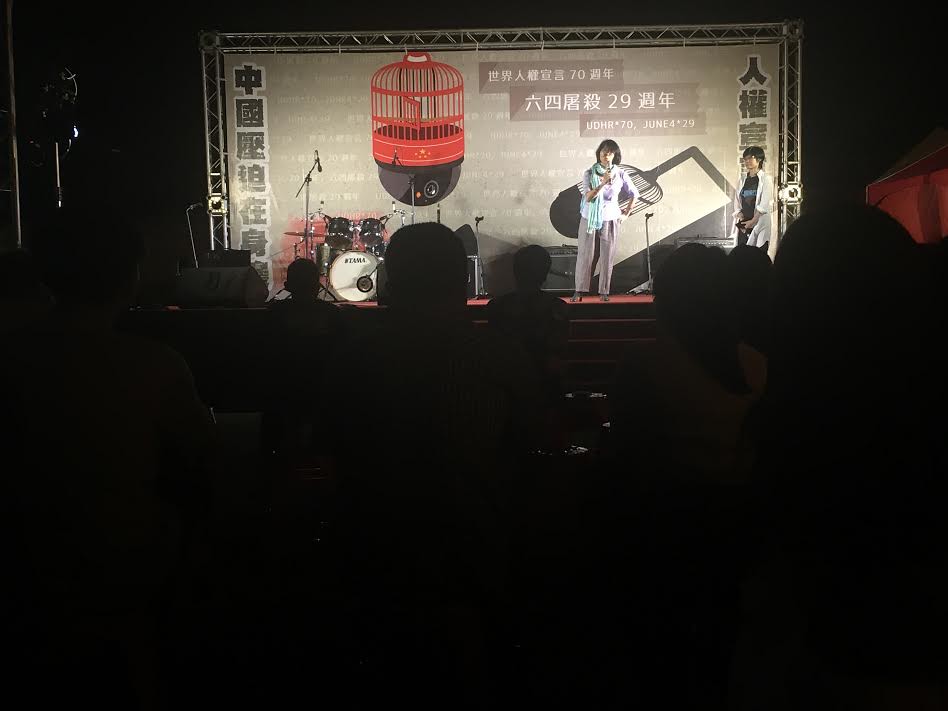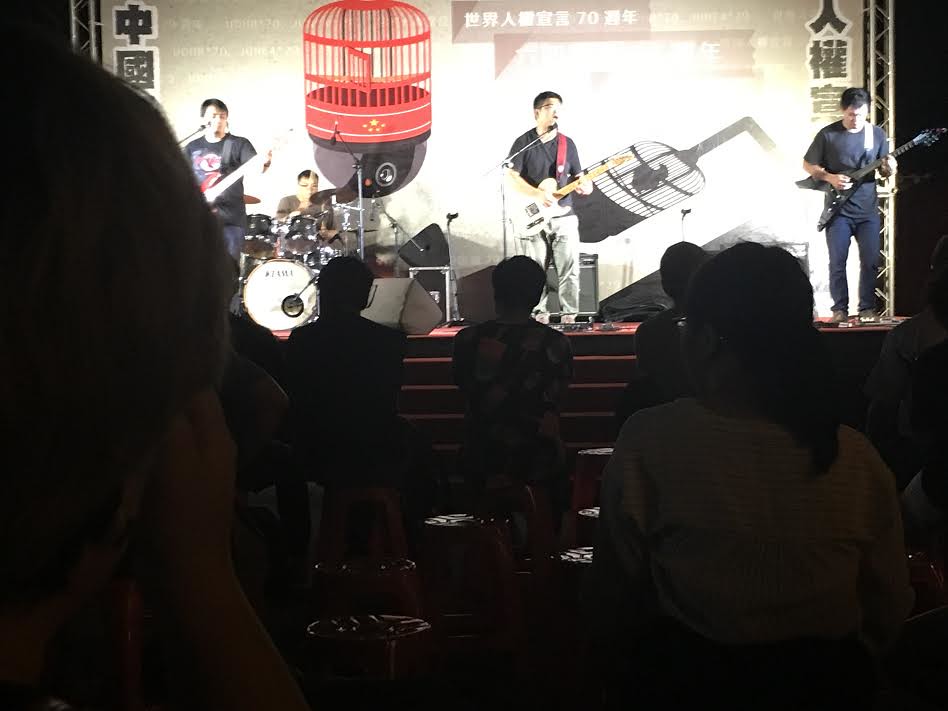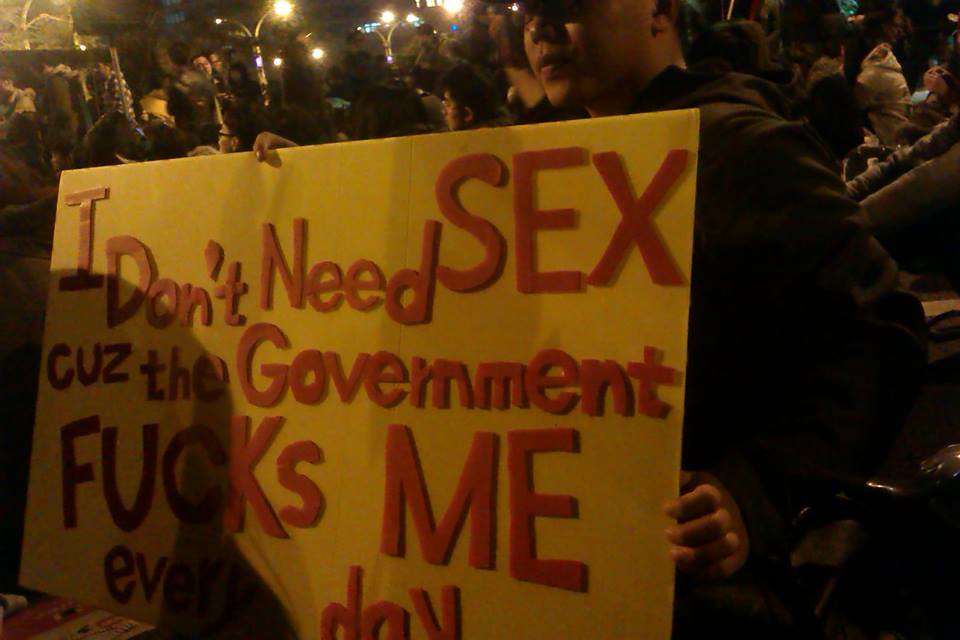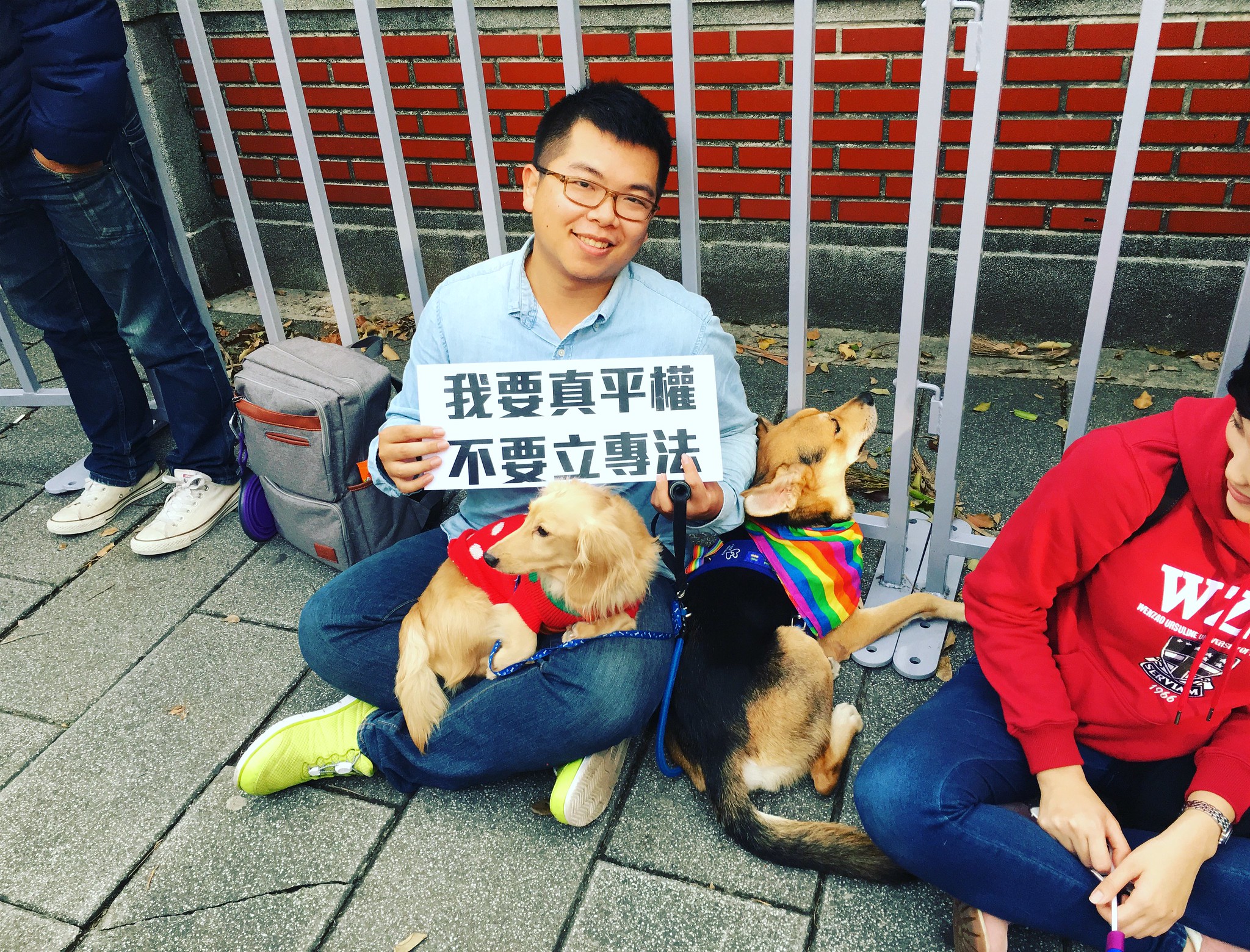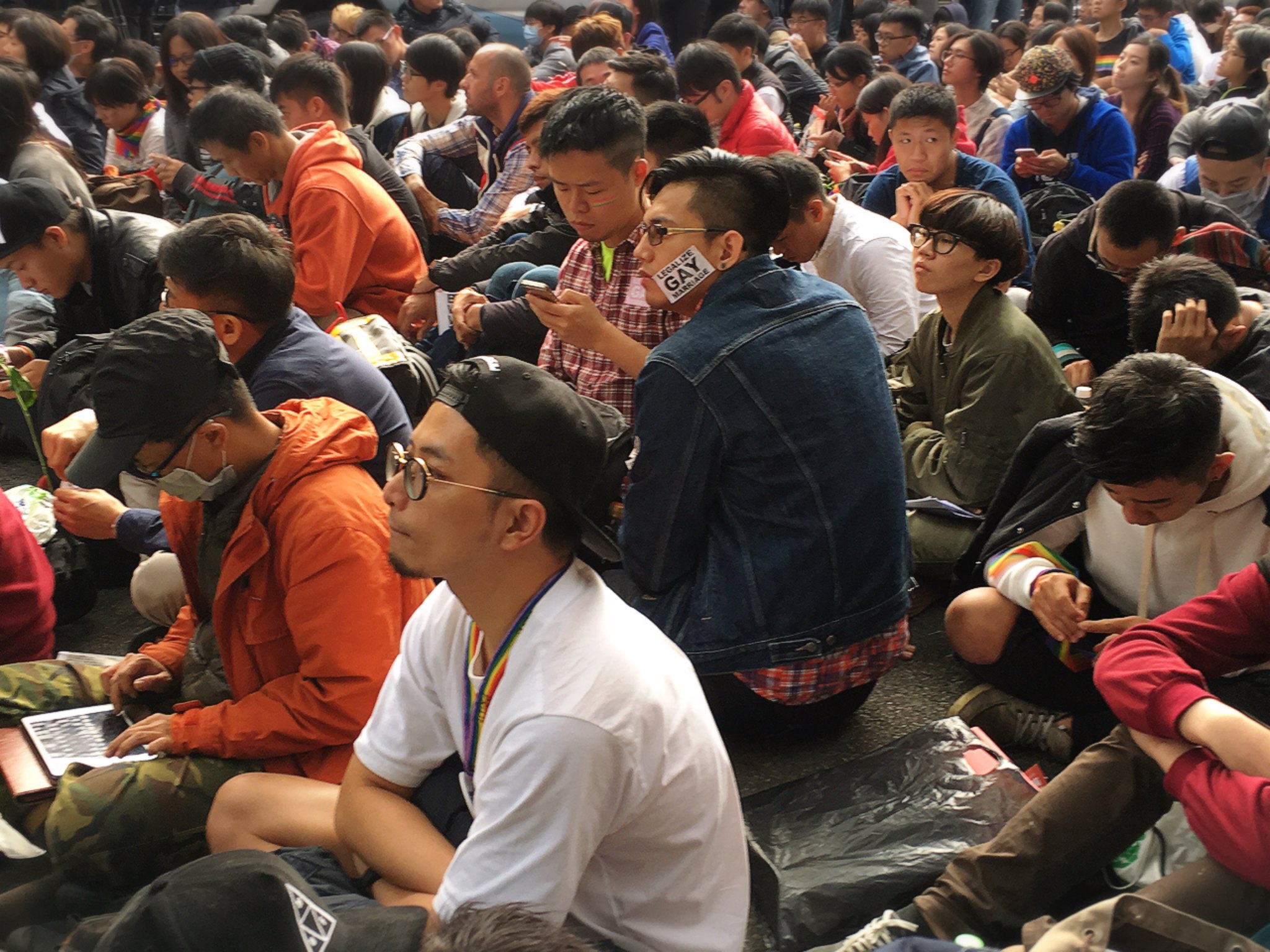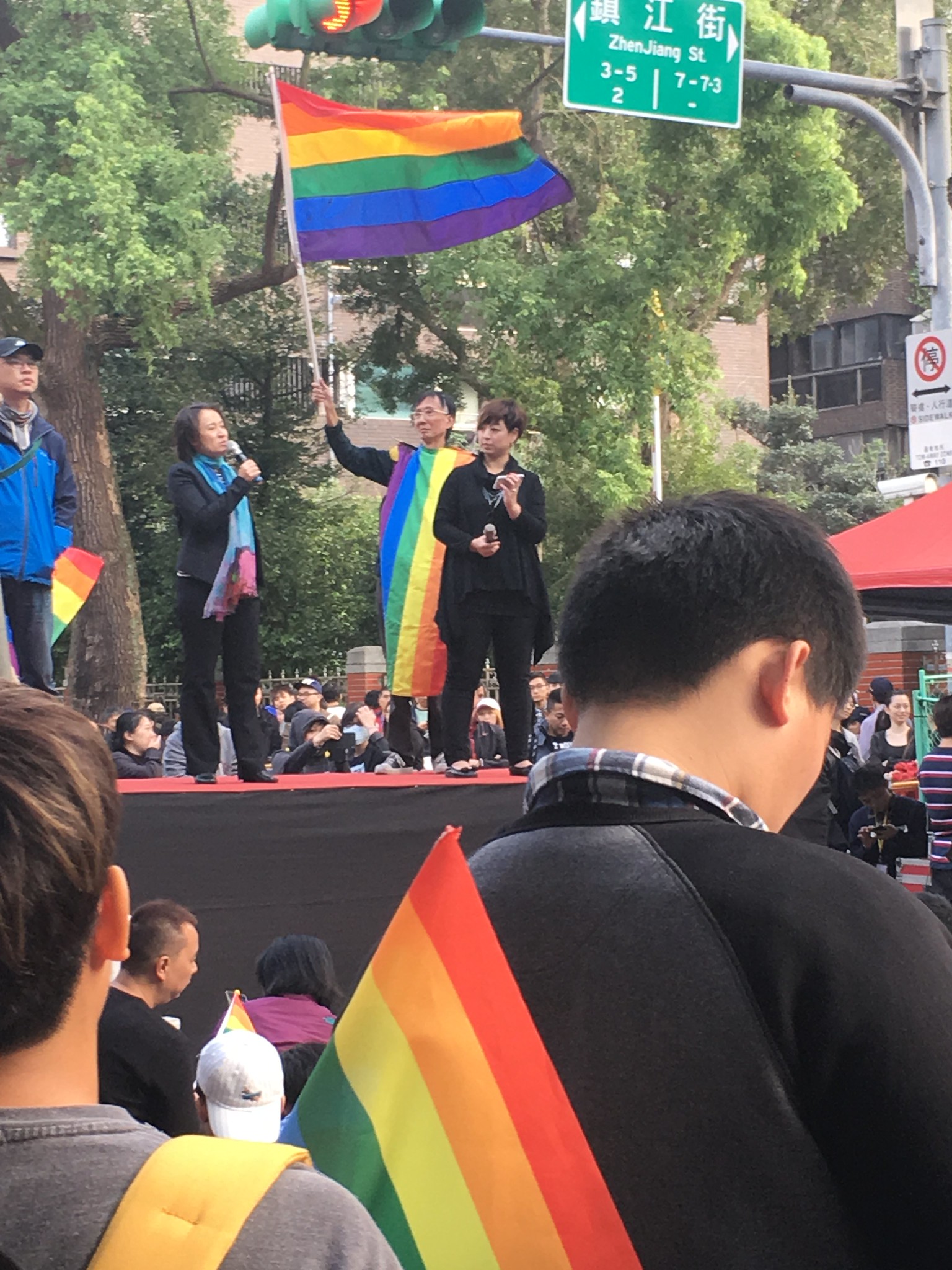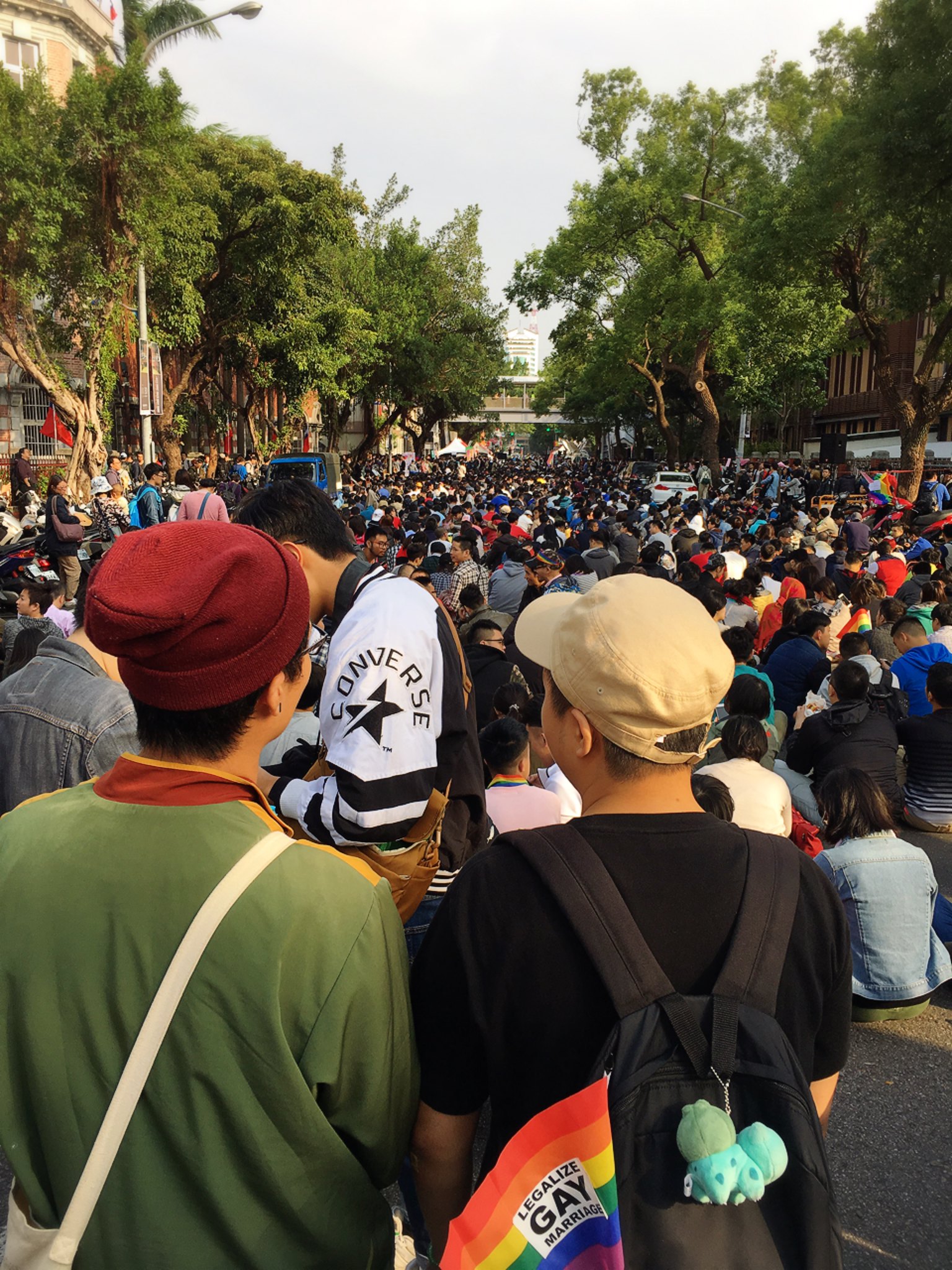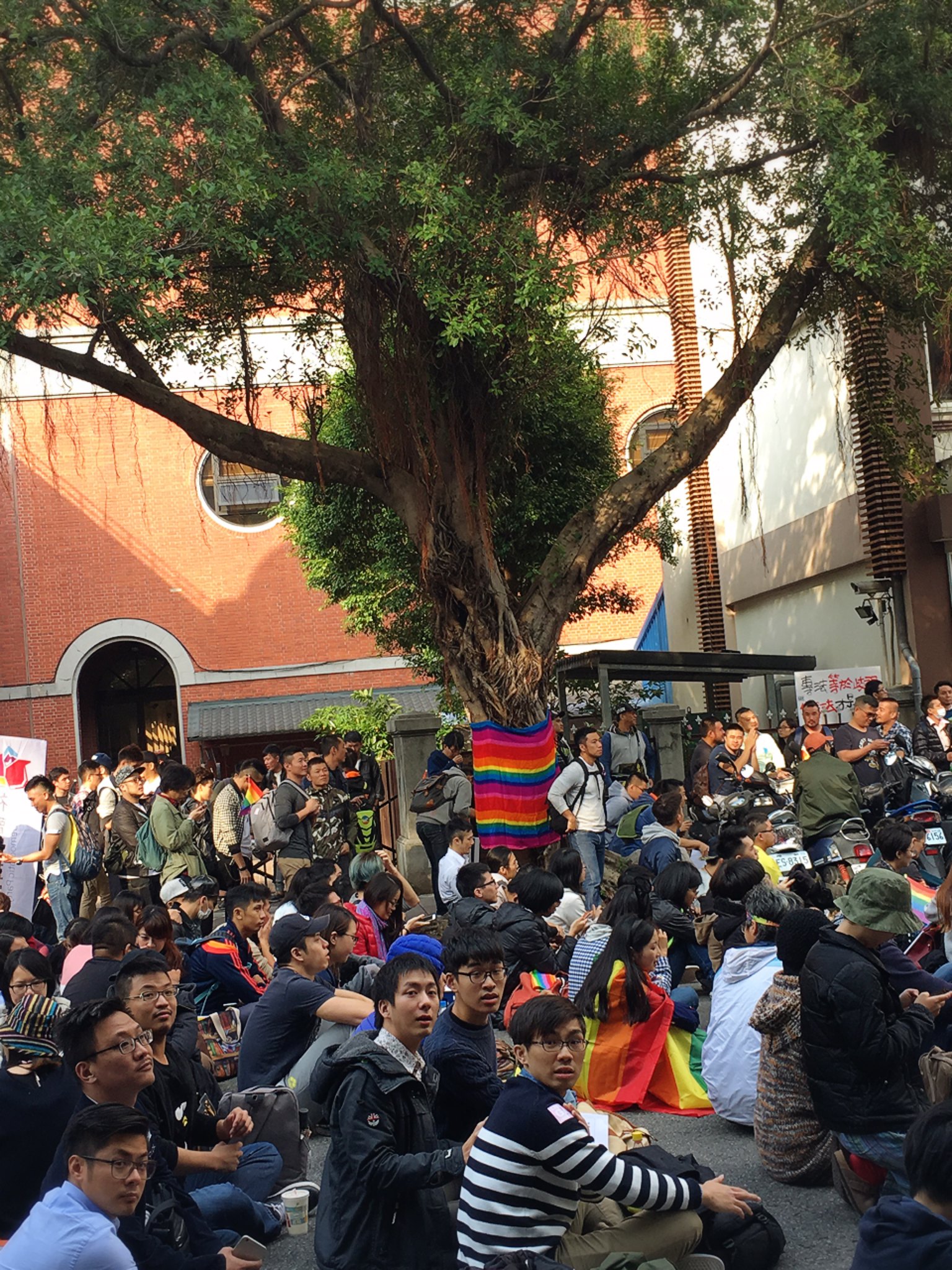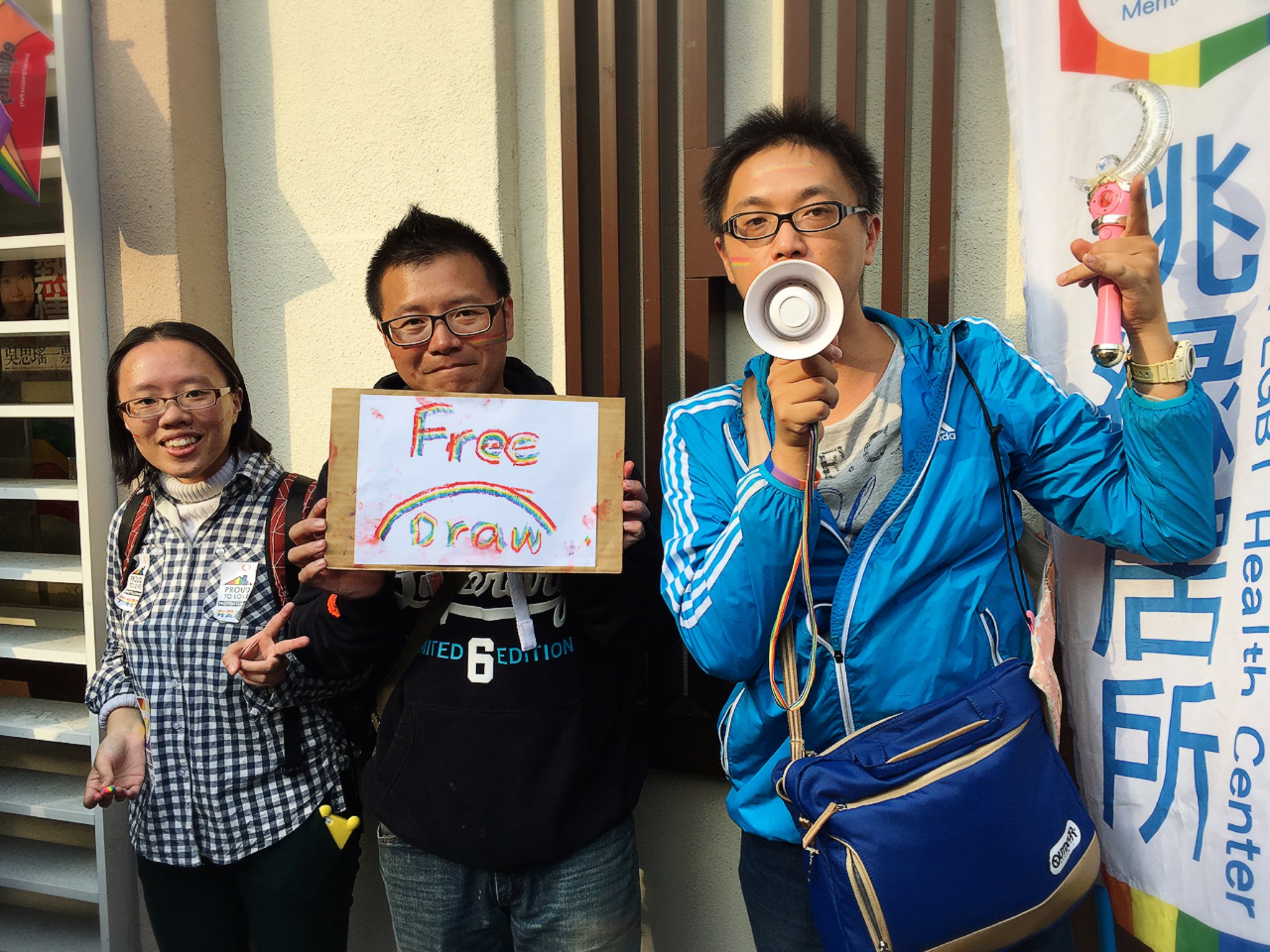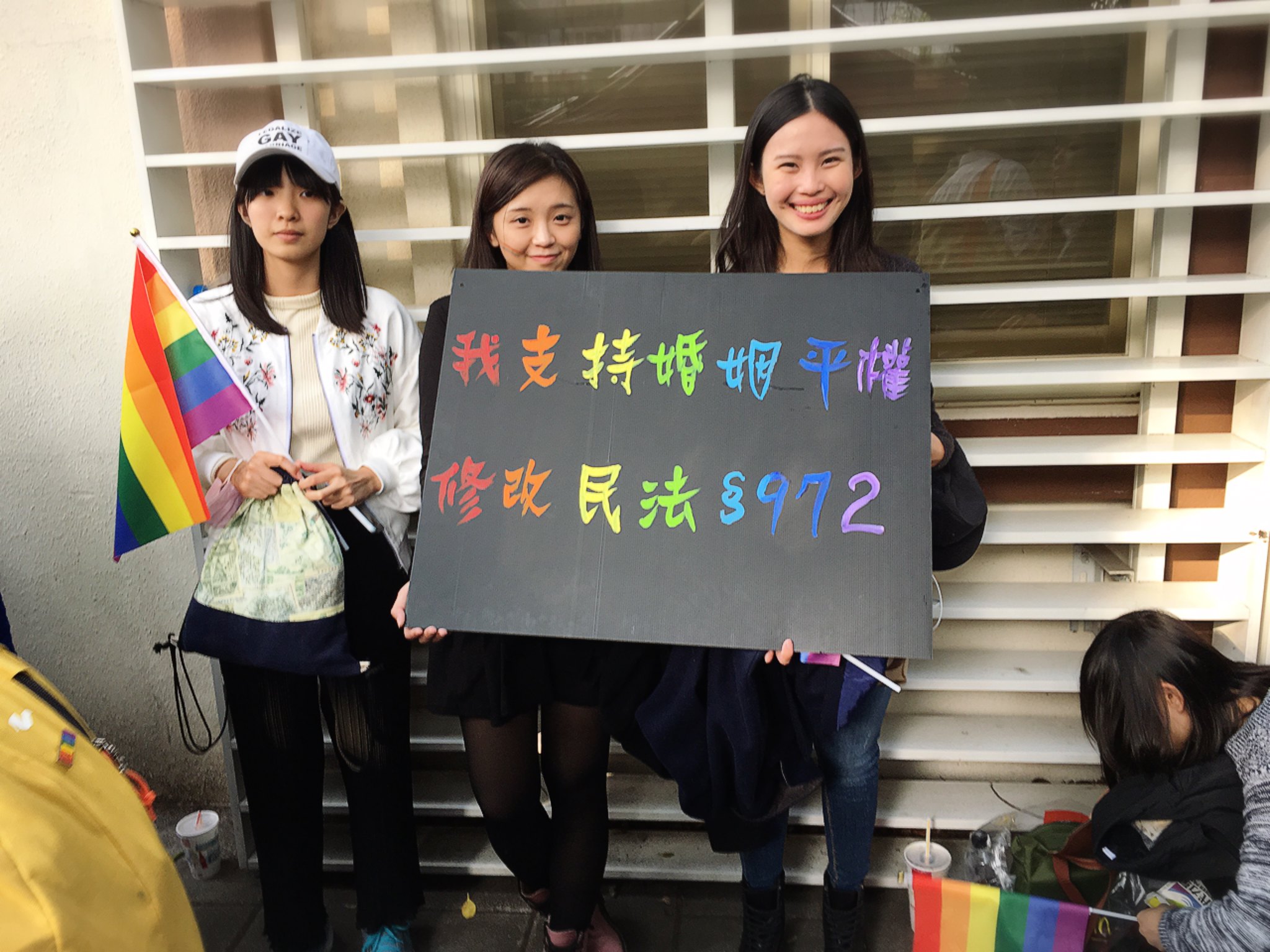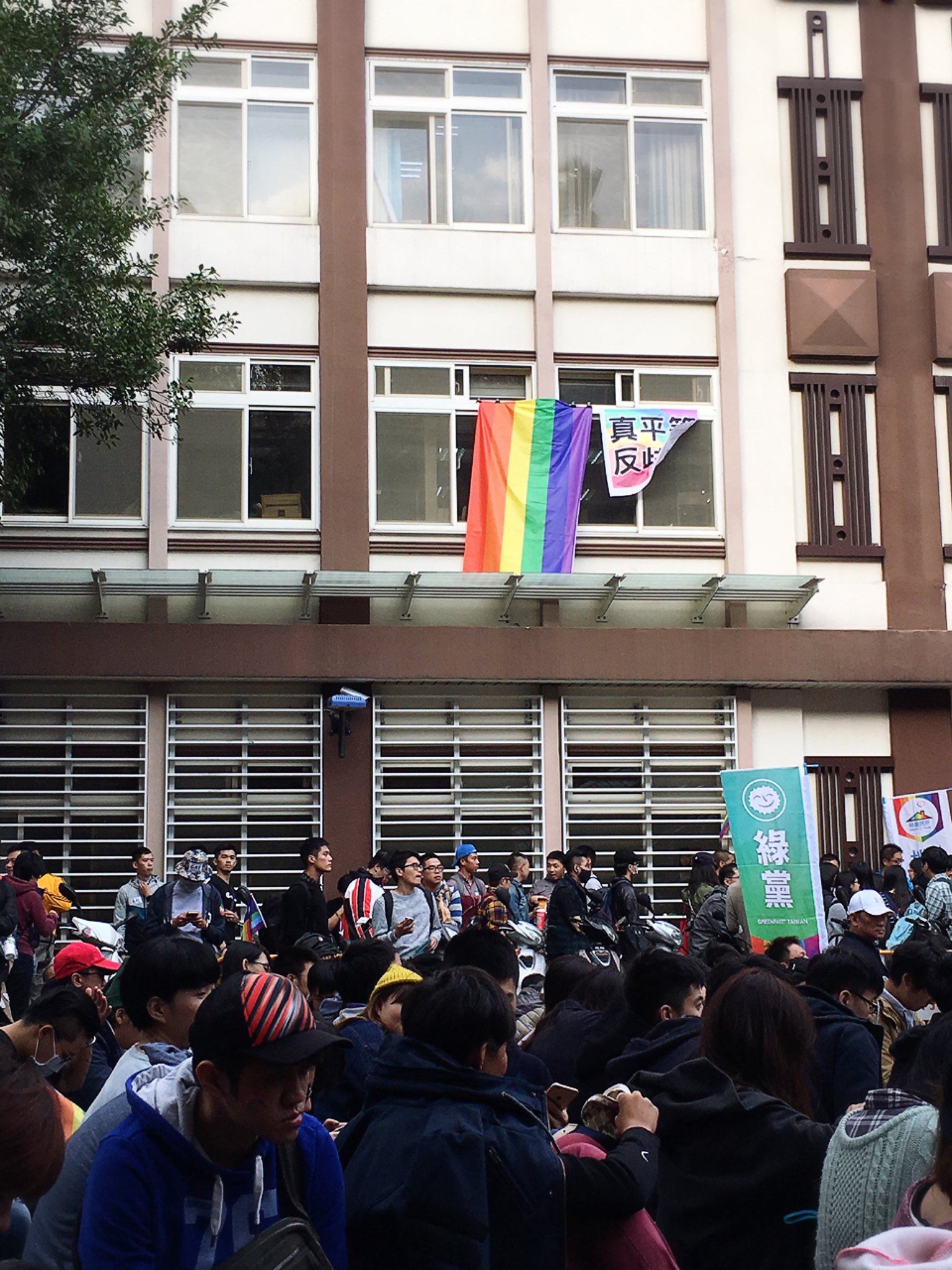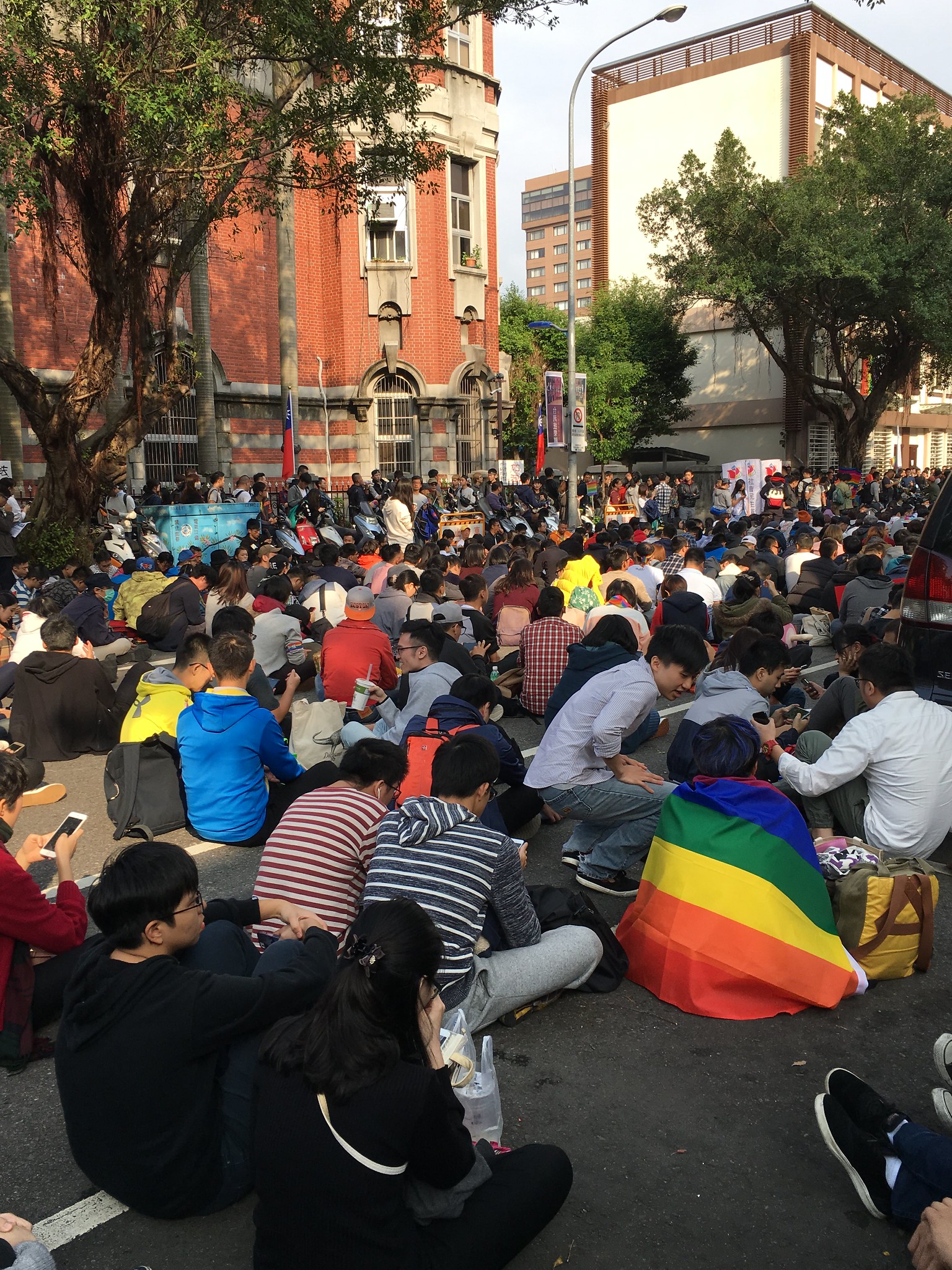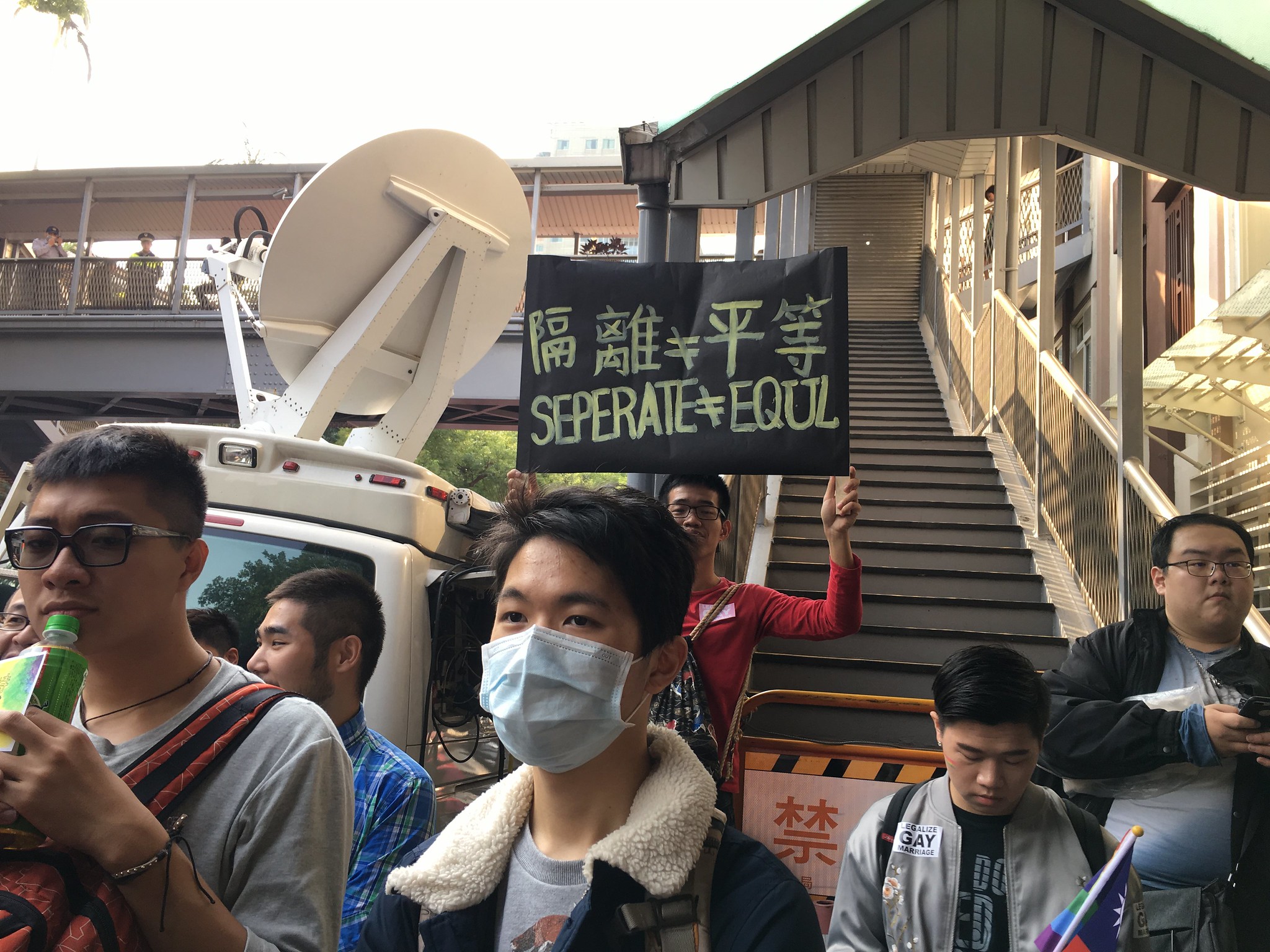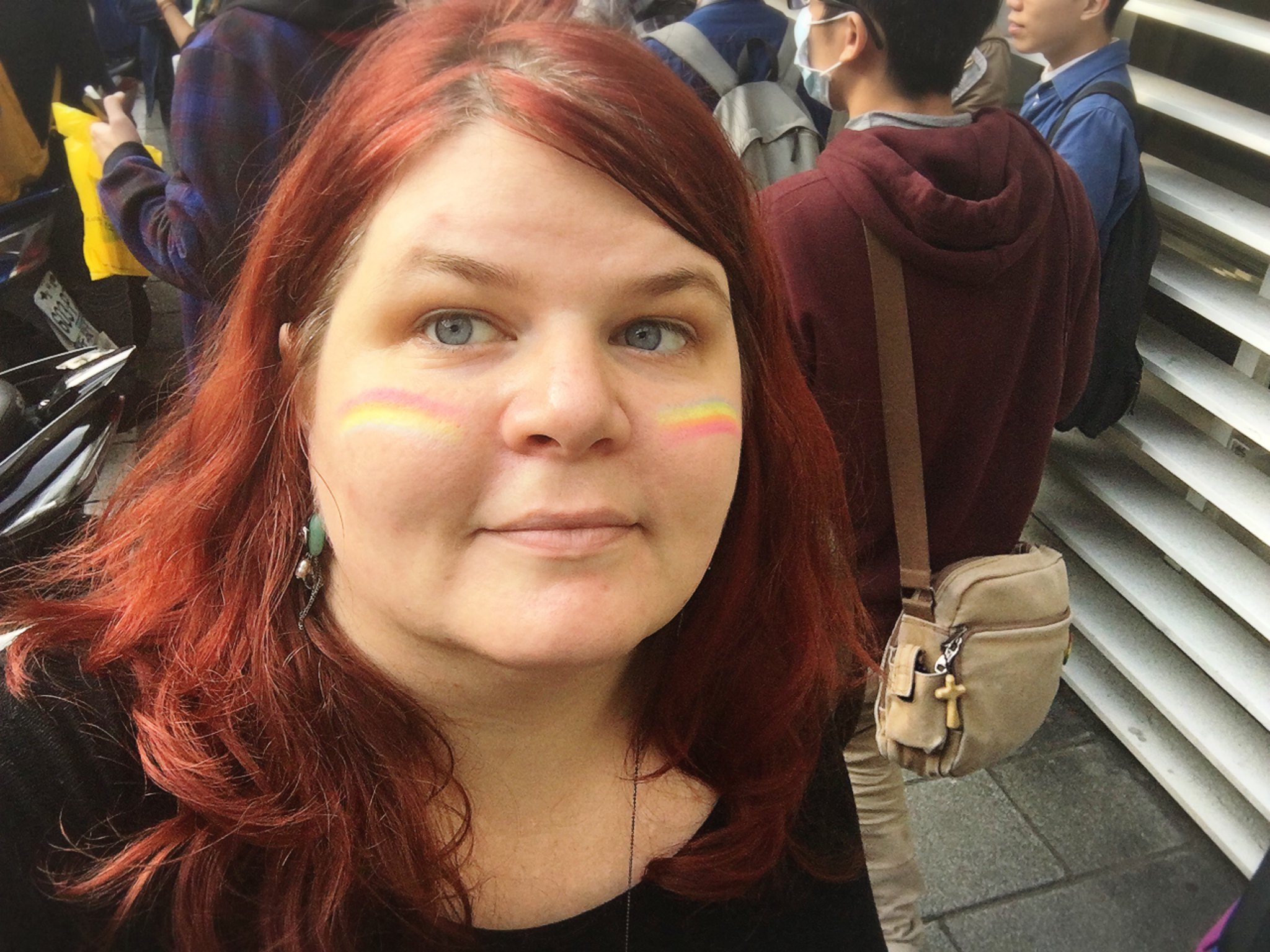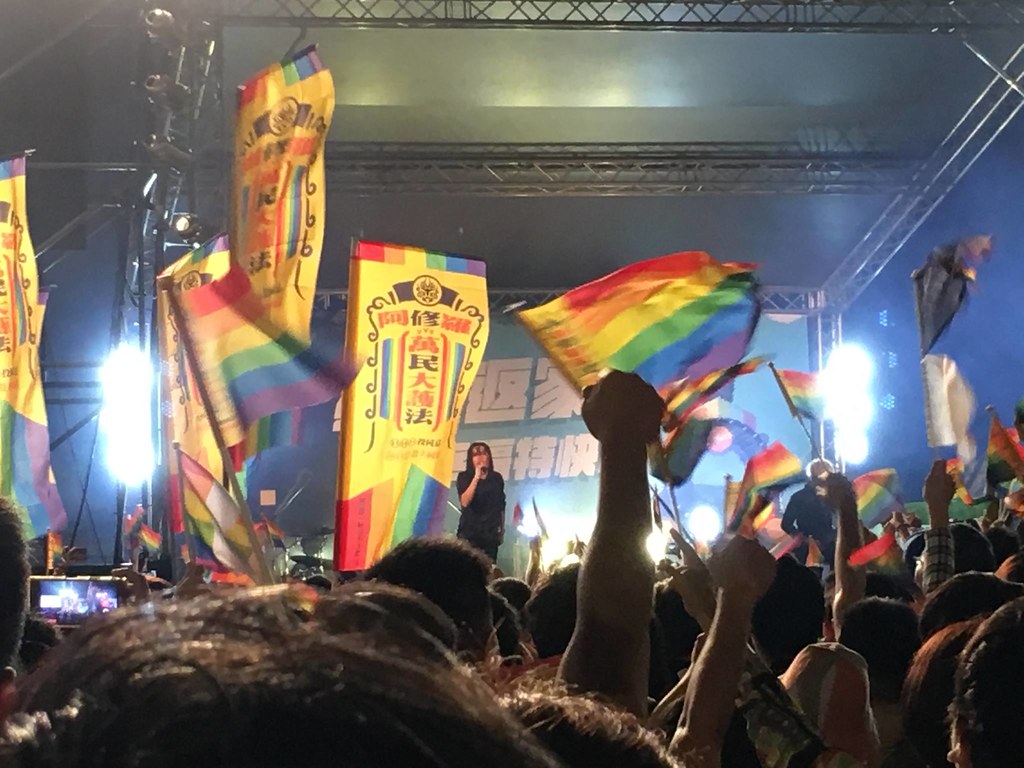
I'm back, just in time! My last pre-dissertation paper is in and I've caught up on sleep, so hopefully it'll be less of a wasteland in here while I get back into writing (though I have a backlog of things I need to write for other people, so it may not be the frenzy that was October).
So, I awoke from my post-academic-writing stupor to realize, oh crap, the election is tomorrow! I can't vote so it shouldn't matter to me, but it does.
I don't like...any of the candidates, just about anywhere. So I'm not even bothering - the major races are a mess and that's that. Taipei especially has no good options. Sooo, whatever. Most of all, I'm worried about marriage equality. And pissed, because while I understand that the DPP wussed out in part because their more conservative supporters weren't having it on changing the civil code, if they'd acted swiftly and just pushed it through, we would not be in this position now, with a vote coming up on people's basic human rights.
This is related to my worry about the candidates, though: the KMT candidates are just...so anti-equality, and anti-gay groups are apparently showing up at their rallies according to friends of mine who have attended (I've been too busy to attend, because I'm a cut-rate blogger.) I have to wonder if the KMT cut a back-room deal with the pink-shirted church jerks: bus your
It doesn't seem likely that the two pro-equality referendums will pass, simply because although at least 25% of the voting population supports them, a fair number are young and can't return 'home' to vote either because they can't afford it or they have to work. Of the big, soft center of Taiwanese society of decent folks who aren't opposed to equality, but aren't passionately for it, I worry that many just won't vote, or will vote for the anti-equality referendums because they've been tricked by those horrible church people.
But, if we do win, the church people aren't going away. We won't have really beat them until we change the civil code and normalize equality to the point that they won't be able to get support for changing it back.
If we lose, there are a few things to take comfort in.
First, that the old out-vote the young, because the young are busy and broke. Even if the anti-equality referendums pass and the pro-equality ones don't, that won't be a complete reflection of Taiwanese society.
Second, they may be trying to put a barrier in our way - ironically making life more difficult for the next generation while braying about how they are trying to "protect" the youth - but the youth of Taiwan overwhelmingly support marriage equality, and while people may grow more conservative as they age, that's never struck me as a view that tends to change once someone realizes equality is right. Those old church people will die - some of them soon, because they're old - and their legacy will not live on. It's too late for that. This particular arc of justice may be long, but its trajectory is pretty set.
Third, even if we do lose, there will be some form of civil partnership by May next year. That doesn't satisfy me - inequality is still inequality and it's not good enough - but it's a step, and then we keep fighting.
What worries me on this end is that politically, Taiwan stands to benefit a great deal from equality: think of the headlines once it actually goes through! It's been great PR for this country already, and started to wake the world up to the ways in which Taiwan is a bastion of (comparative - in certain ways only) liberalism in Asia. The longer we delay that, the worse it will be for Taiwan. And if we delay too long and are not, in fact, the first country in Asia to pass actual marriage equality, we'll lose a huge opportunity to make massive global headlines. All those pro-independence greens who say they want the world to notice Taiwan as Taiwan, but who are conservative and maybe even Christian (the DPP has strong ties to the Presbyterian church) are shooting themselves in the foot, and they don't even seem to realize it. We not only need to do this soon for the sake of LGBT people, we need to be the first in Asia for Taiwan's political sake.
And finally, it's not particularly clear to me that the results of any of these referendums are binding (I've heard people say they are, and that they aren't, and I've been too mired in school work to research it on my own.)
So, whatever happens tomorrow, the march toward equality in Taiwan continues, and there will be progress. There has already been progress: from a few years ago when the anti-equality side was trying to stop any sort of civil partnership for LGBT people and attempting to paint them as moral degenerates, to now when even the anti-gay camp being forced to support some sort of civil partnership law, the conversation has changed. If we lose, we can't accept the bottom line of the church people, but we have shown that the conversation can keep changing.
100,000 or so people showed up to Ketagalan Boulevard this past Sunday for a pop-and-metal-star filled afternoon of music and cheering, when estimates had been for a far smaller crowd. It was bigger than the rally for any of the Taipei mayoral candidates, and bigger than anything the anti-equality crowd has been able to put together. Interestingly - from my perspective anyway - the way marriage equality has been approached in Taiwan feels unique. I can't imagine, before it became a nationwide law in the US, a pro-equality rally featuring a black metal band as one of its most famous acts. I guess in the US we just don't Metal For Our Rights (to quote a friend). I sat through the whole thing writing my paper while splayed out on the pavement, protesting and doing my homework at the same time...and I have never felt more Taiwanese.
In any case, we draw crowds. We change conversations. We push forward. The generation that is on its way out is the last generation that will keep us from marriage equality in Taiwan. Even if they win this battle, they have emphatically lost the war.
That doesn't make me happy per se, but it's keeping me away from the bottle tonight.
